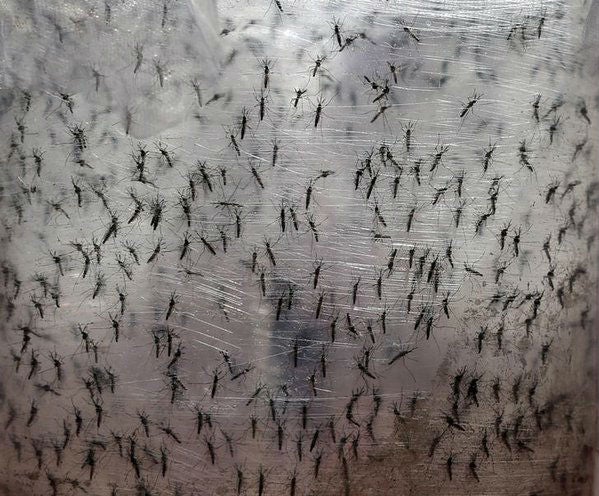Zika virus in Australia: Two cases of infection discovered in New South Wales
The virus has been declared a global health emergency by the World Health Organisation

Your support helps us to tell the story
From reproductive rights to climate change to Big Tech, The Independent is on the ground when the story is developing. Whether it's investigating the financials of Elon Musk's pro-Trump PAC or producing our latest documentary, 'The A Word', which shines a light on the American women fighting for reproductive rights, we know how important it is to parse out the facts from the messaging.
At such a critical moment in US history, we need reporters on the ground. Your donation allows us to keep sending journalists to speak to both sides of the story.
The Independent is trusted by Americans across the entire political spectrum. And unlike many other quality news outlets, we choose not to lock Americans out of our reporting and analysis with paywalls. We believe quality journalism should be available to everyone, paid for by those who can afford it.
Your support makes all the difference.Two cases of the Zika virus infection have been confirmed in Australia.
The two cases are residents of New South Wales who had recently travelled to the Caribbean.
Dr Vicky Sheppeard, director of communicable diseases at NSW Health, said in a statement the cases were confirmed on Friday, but added that it is “very unlikely” the infection will spread locally.
“It is very unlikely that Zika virus established local transmission in NSW as the mosquitoes that spread the infection are not established here – although they are found in some parts of Queensland,” Dr Sheppeard said.
Health experts in Australia’s Far North Queensland said that were there to be an outbreak in the area it is likely to be “very minor” however.
Speaking to Sky News Australia, Dr Cameron Webb, an expert on mosquito-borne viruses, said: 'We're very fortunate that the authorities in Far North Queensland have a lot of experience dealing with these small outbreaks of mosquito-borne diseases.
“Exactly the same mosquito that spreads dengue fever in Far North Queensland is the species that's spreading Zika virus,” he added, explaining that even if an infected traveller came to the area and infected local mosquitoes, authorities would be able to respond using the strategic framework already in place for cases such as Dengue fever, making any outbreak “likely to be very minor.”
The World Health Organisation has declared a global emergency over the Zika virus outbreak and has estimated a total of four million people could become infected with the virus this year.
The Zika outbreak began in Brazil last year and is believed to be linked to microcephaly, a condition that causes babies to be born with small heads and brain damage. There is no vaccine, and woman who are or who could be pregnant have been advised reconsider their plans to travel to affected areas – including Latin America, Cape Verde, Samoa and Tonga - or if this is not possible, to be scrupulous in protecting themselves against mosquito bites.
Join our commenting forum
Join thought-provoking conversations, follow other Independent readers and see their replies
Comments